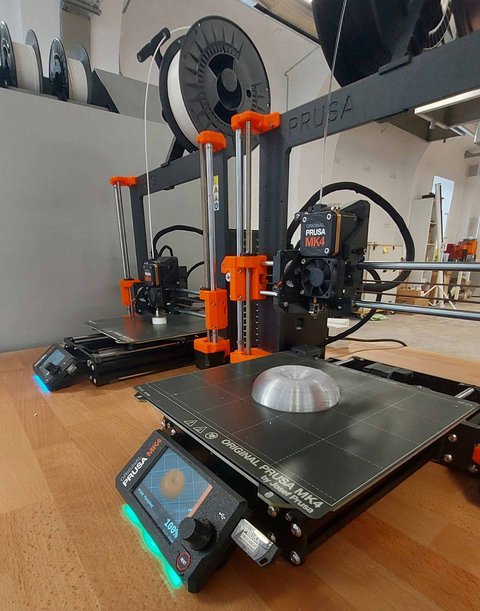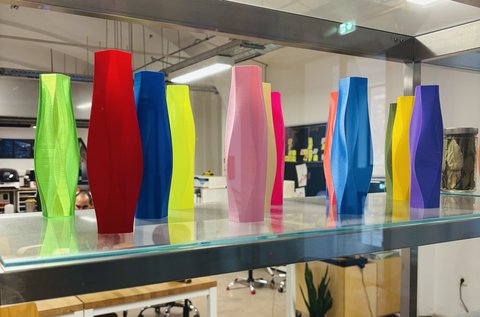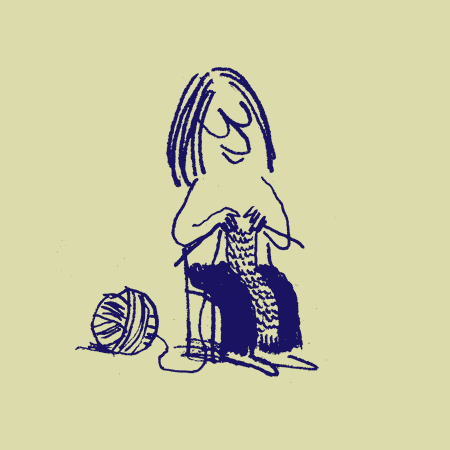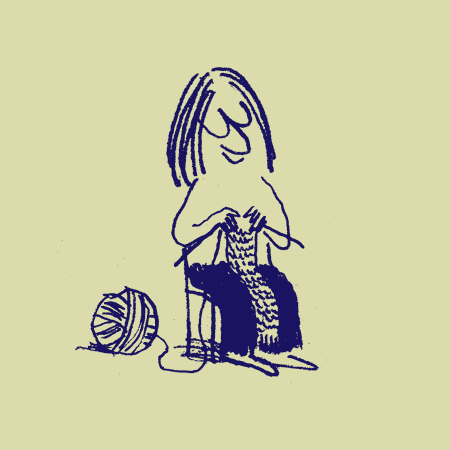Shared Spaces – Shared Futures
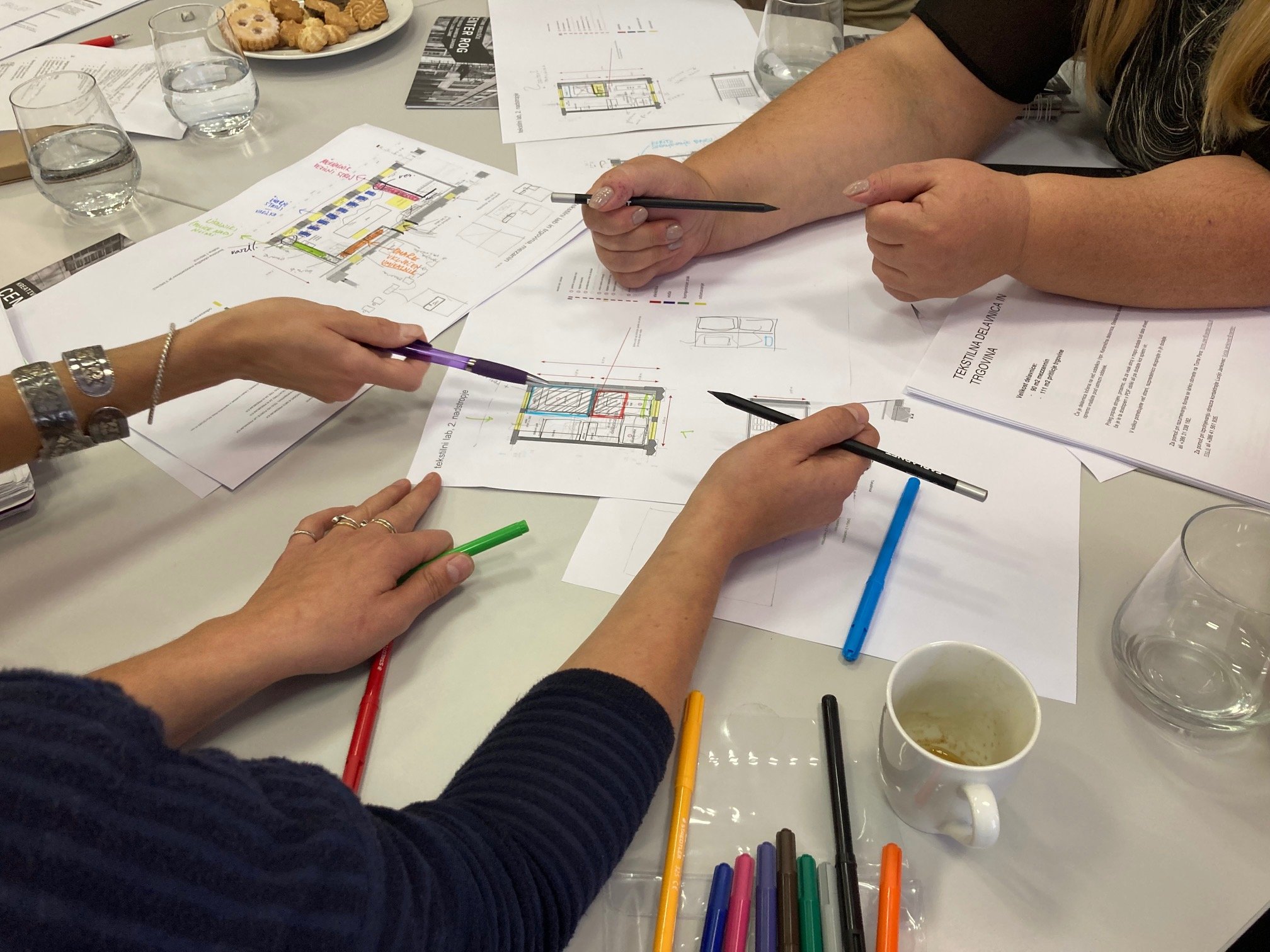
In December 2021 the Rog Centre embarked on the latest stage of its participatory development programme, in the form of the Shared Spaces – Shared Futures project in partnership with the European Cultural Foundation. This project involves five working groups, each exploring in detail one important aspect of the programme and operations of our new, shared creative centre. The results of their work will be discussed with the public in April, and draft proposals will be published in May, after input from international experts. The final results will be presented to the public at a special international event to be held in Ljubljana in June.
Following a review of the theoretical and practical background, the Participatory Governance in the Rog Centre working group, coordinated by Karolina Babič, has identified three levels of participation appropriate for the Rog Centre. These are: 1) provision of information to users, and moderated dialogue with and between users, in the form of a forum; 2) user involvement in decision-making as part of the Rog Centre’s consultative body; and 3) user involvement in decision-making as part of the participatory budget process. The working group will now go on to define in more detail what form these three levels of participation might take for specific categories of users. Working group members: Matic Primc, Rok Oblak and Filip Muki Dobranić.
The working group on the Rog Centre’s Green Spaces, coordinated by Urška Jurman, began by focusing on the design of 1) a new park to be situated between Trubarjeva ulica and the Rog Centre, and 2) the embankment of the Ljubljanica River. The group proposed that biodiversity be enhanced and that the Centre’s green areas be laid out so as to allow greater access by future users. It also considered the most appropriate location for the new graffiti areas to replace the existing legal graffiti wall lining Trubarjeva ulica. Over the coming weeks the group will prepare examples of scenarios for the community use and management of these green areas, and consult on them at a workshop to be held with local residents and community groups. Working group members: Marjetica Potrč, Primož Turnšek, Gaja Trbižan and Gregor Bulc.
The working group on the Inclusion of Refugee and Migrant Populations in Rog Centre Operations, led by Romana Zajec, is forming connections with migrant communities and refugees, largely through the Odnos Society, which provides integration assistance to refugees. The group is currently preparing an extensive questionnaire and setting up focus groups with potential users from these target groups, thereby pursuing two key objectives: 1) to better understand their needs and how these groups could be supported through inclusion in Rog Centre activities; and 2) to map the knowledge contained within the refugee and migrant communities, in order to understand the potential for transferring it, both to the local population and within those communities. This working group is focusing especially on the potential of enhanced social inclusion of vulnerable target groups as a tool for social cohesion. Working group members: Giovanna Paola Severino Gutierrez, Karla Varela, Furkan Güner and Katarina Kromar.
The Gender and Technologies working group, coordinated by Teja Reba, is exploring various aspects of creating an inclusive working environment and ensuring equal opportunities at the Rog Centre. In February the group held its first workshop, moderated by researcher Tanja Petrović, giving women working in the creative sector the opportunity to share their experiences and explore good practices.The first part of the workshop addressed general issues and challenges occurring both at the systemic level and in individual working environments; the second focused on specific aspects of Rog Centre operations. Participants discussed the ways in which the activities included in the Rog Centre Gender Equality Plan could be used to create a working environment offering equal opportunities to both staff and a wide range of users. Under the leadership of researcher Emilija Stojmenova Duh, this group is also working on the equal representation of women in management positions in Rog Centre fab labs. Working group members: Tanja Petrović and Emilija Stojmenova Duh.
The final working group, led by Matevž Čelik, is preparing an advocacy plan for systemic support to socially and environmentally beneficial projects in Rog Centre target areas: fabrication, urban handicrafts, design and architecture. It has identified the target groups for this advocacy strategy and prepared an initial draft, which will be presented at a consultative workshop to be held with a wide group of stakeholders. Working group members: Matej Feguš, Sanja Grcić and Goran Forbici.
See more
Paxia
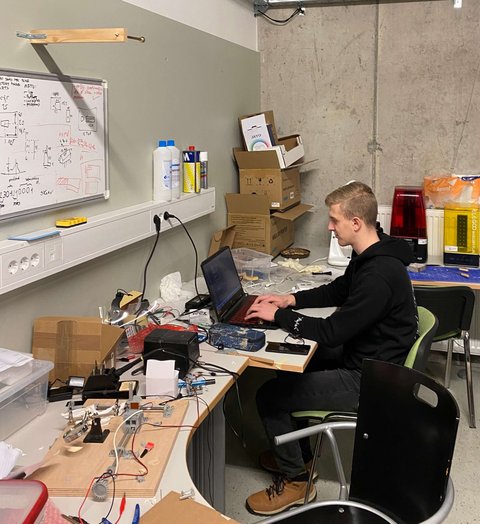
The Blue Voyager unmanned aerial vehicle is used for automated sampling of water sources and analysis of samples during flight. Behind the product is the startup Paxia, which consists of students Domen Trontelj, Tilen Šket and Rok Hladin...

